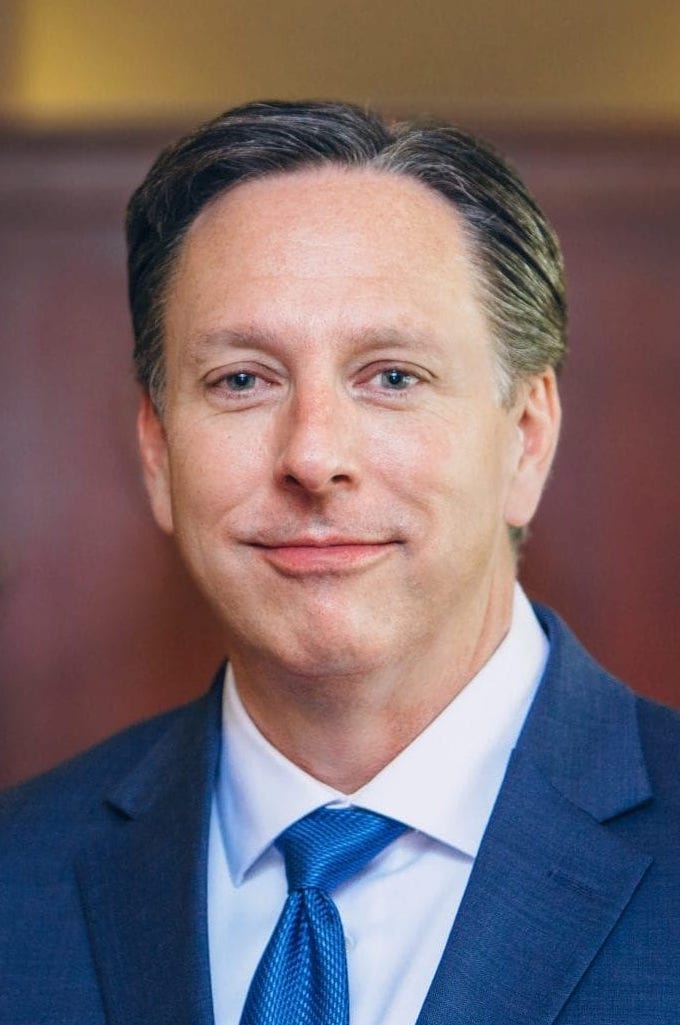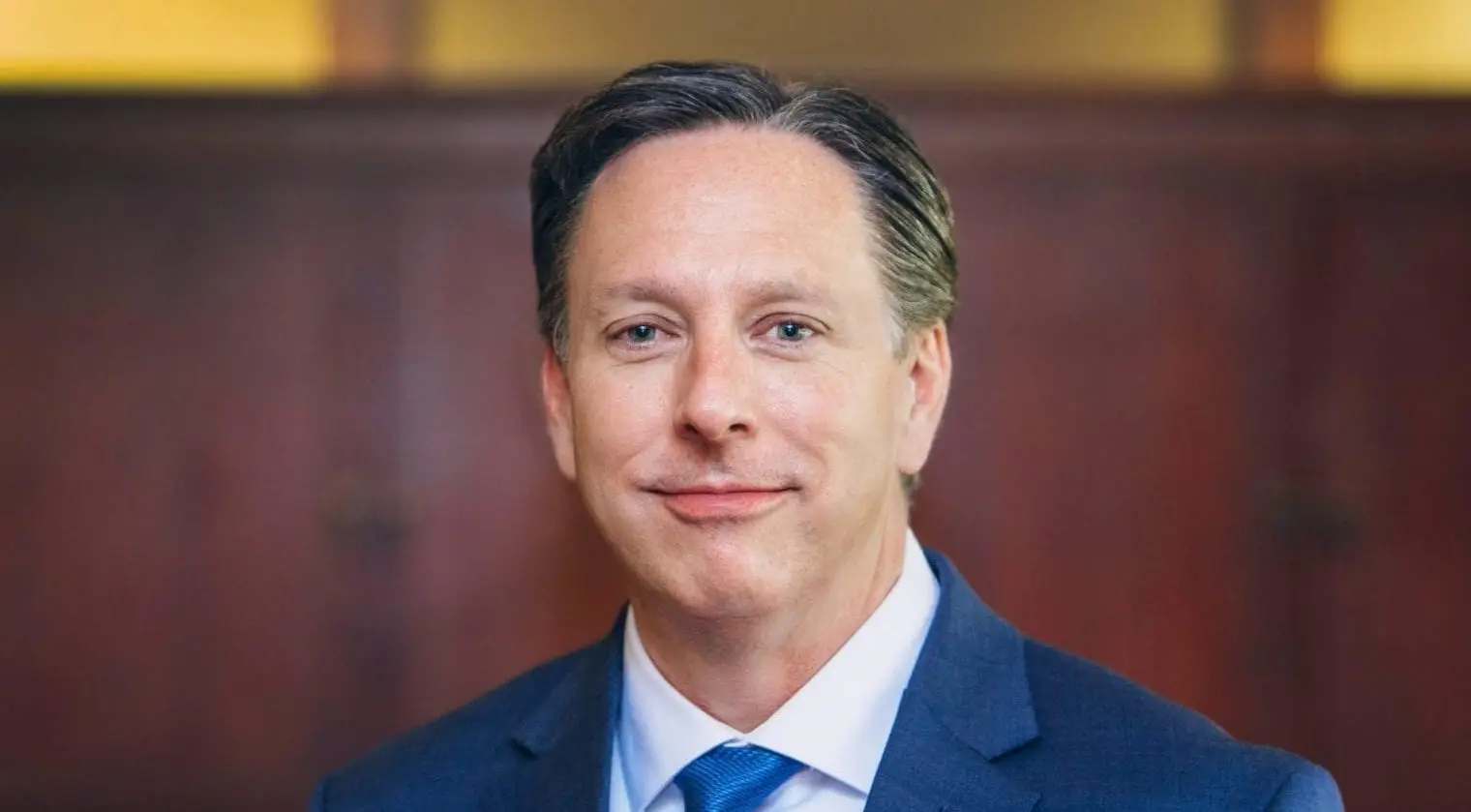
By Stan Norman, Ph.D.
President, Williams Baptist University
One of the recent, unanticipated realities for our family is that all of our sons currently reside in Denver, Colorado. What makes this unexpected is that we are not from that state, we have never lived in that state, nor do we have immediate family in that state. So, the fact that all our children (and grandchildren!) now reside there is an unforeseen development.
As parents, we have been, and will always be, concerned about the spiritual, emotional, physical, and financial well-being of our children. One expression of this concern is that each son would have a job where he could support himself. As each one moved to Colorado, we found ourselves asking, “Will he be able to support himself there? How will he go about getting a good job? What kind of job would he be able to get that will meet his needs?” We asked the Lord to provide each son a good job in their new location.
So, when our youngest son moved to Denver, we prayed that the Lord would provide a job for him. As always, God was faithful and did provide our son a job. The interesting element to this (at least, interesting to us) was the kind of job our son managed to get – construction. Having grown-up in contractor’s family, I knew the demands of this vocation – life in the construction business can be tough and challenging. I also knew that our youngest son had no experience in this area. Given these realities, we were surprised to learn that this was our son’s vocation of choice. Despite our reservations, we were prayerfully hopeful that our youngest would invest himself in his new job and, if he stayed with it, over the course of time he would establish for himself a career in this vocation.
Imagine our further surprise when, after three months on the job, he called to tell us that he had been promoted to the position of site manager. Not wanting to dampen his excitement about this promotion, I kept my curiosity in check until an opportune place in the conversation presented itself for the question swirling in my mind – how he had managed so quickly to get a supervisor’s position in a job where he had little experience and limited training? I will never forget his response: “Dad, if you show up to work on time, go to work when and where you are supposed to go, work hard all-day, and follow directions and are willing to learn, you can go far and advance in your job. Thank you and Mom for teaching me how to work.”
Well – who saw that coming? Evidently, this type of work ethic is in short supply in our nation today. As my son learned through this experience, success and advancement in one’s vocation still rests upon the time-tested truth – you can go far in life with a strong work ethic. Somewhere along the way, many Americans have lost sight of this truth – that hard work has great value and dignity. The loss of a strong work ethic among many today is having detrimental impact upon many families.
A strong work ethic is foundational for human flourishing. This reality is true because work was God’s idea – God created work, and God created human beings to work. God blesses those who work hard and work well.
I am often asked, “Why is WBU transitioning to a work-college model?” Good question – especially in light of the fact that only a handful of true work colleges exist in higher education today. We at Williams Baptist University have embraced the challenge to build a university where students can get an outstanding education embedded in a Christian worldview as they work their way through school and graduate debt-free. This commitment has obvious financial benefits for the students, and I hope to address the financial considerations of this education model in a future article. For now, I want to explore the primary reason we are making this transition. We believe that a biblically-grounded, Christ-centered education requires we teach and train our students how to work.
The mission of Williams Baptist University is to produce exceptional graduates prepared to engage local and global cultures through a Christ-centered worldview. WBU exists to provide a learning experience that is faithful to God’s word and relevant to our world. In order to fulfill this mission, I believe that a well-rounded, robust education requires learning the value of work as well as how to work. My desire is that each student who graduates from WBU receives an exceptional, Christ-centered education in which knowing how to work is a crucial component.
I believe the teachings of God’s word require this commitment of WBU. The Bible speaks clearly on the role and value of work in the purposes of God. One of the first things revealed to us in Scripture is “in the beginning” – there is God, and God is working. As soon as the Bible begins talking about anything, it speaks of God at work – that is how important and basic this concept is. The author of Genesis (Moses) describes God’s creation of the world as work. In fact, he depicts the magnificent project of creation within a regular work-week of seven days, and then he shows human beings working in Paradise. Work could not have a more exalted beginning.
The God who works is also the God who delights in His work (Genesis 1:31; 2:1). God finds what He has done to be beautiful. He stands back, takes in “all that He has made,” and says, in effect, “That’s good!” Like all good and satisfying work, the Worker sees Himself in His work. The true, living God is the God who works. Our God is the God at work.
Part of God’s good work is that He commissions workers to carry on His work. In Genesis 1:28, God tells human beings to fill the earth and subdue it. “Subdue” indicates that, though all God had made was good, creation was still to a great degree undeveloped. God left creation with deep, untapped potential for cultivation that people were to unlock through their labor. In Genesis 2:15, God puts human beings into the garden to “work it and keep it.” The implication is that, while God works for us as our Provider, we also work for Him.
The Bible teaches that work is good. The book of Genesis leaves us with a striking truth – work was part of Paradise. God’s good plan always included human beings working, living in the constant cycle of work and rest. Work did not come after a golden age of leisure. Work was not brought into our human story as a consequence of the fall of Adam into sin. Work was part of God’s perfect, blessed design for human life from the beginning. We were made in God’s image, and when we work, we bear His image for His glory and our good.
Work is as much a basic human need as food, beauty, rest, friendship, prayer, and sexuality; it is not simply medicine, but food for our soul. Without meaningful work we sense significant inner loss and emptiness. People who are cut off from work because of physical or other reasons quickly discover how much they need work to thrive emotionally, physically, and spiritually.
Work is so foundational to our makeup that it is one of the few things we can take in significant doses without harm. The Bible does not say we should work one day and rest six, or that work and rest should be balanced evenly. Rather, the Bible directs us to work six days and rest one. Leisure and pleasure are great goods, but we can take only so much of them. If you ask people in nursing homes or hospitals how they are doing, you will often hear that their main regret is that they wish they had something to do, some way to be useful to others. They feel they have too much leisure and not enough work. The loss of work is distressing for most of these people – we were created to work.
According to the Bible, we don’t merely need the money from work to survive; we need the work itself to survive and live fully human lives. Work is one of the ways we make ourselves useful to others rather than just living a life for ourselves.
Work is a mark of human dignity. Work of all kinds, whether with the hands or the mind, affirms our dignity as human beings – it reflects the image of God the Creator in us. Only man is set apart and given a job description (Gen. 1:26b, 28b; 2:19; Ps.8:4–8; James 3:7). While plants and animals are called to “teem” and “reproduce,” only humans are explicitly given a job. They are called to subdue and have dominion over the earth. Work has dignity because it is something that God does and because we do it as His representatives.
God’s work in Genesis 1 & 2 is “manual” labor as He shapes us out of the dust of the earth, deliberately putting a spirit in a physical body, and as He plants a garden (Genesis 2:8). In Genesis we see God as a Gardener, and in the New Testament we see Him as a Carpenter. Physical labor is God’s work. No task is too small a vessel to hold the immense dignity of work given by God. We were built for work and the dignity it gives us as human beings, regardless of its status or pay.
A final observation is that work is service to God. God equips all people with talents and gifts for various kinds of work for the building up the human community. The Bible teaches us to view our daily work as a calling, as God’s assignment, to serve others. Some of the saints in the Bible who made the greatest impact for the glory of God were those prepared to use their work as a platform for kingdom influence in the marketplace (Abraham, Joseph, Esther, Daniel, Nehemiah). To be faithful to these biblical examples, our mission requires preparing workers for gospel witness in marketplace service.
So, why are we transitioning to a work-college model at Williams Baptist University?
- Because the Bible teaches that we were created God’s in image – God is the God who works, and work is one of the ways we bear His image
- Because we find dignity, purpose, and flourishing in our work
- Because work itself is a calling, a vocation, to serve the Lord and to serve others
- Because work that is grounded upon the word of God provides God’s people a platform for gospel witness and service
- Because our work can bring glory to God
Fulfilling the WBU mission requires that we strategically elevate the prominence and role that work has in our educational endeavors. We are making this transition to be faithful to the teachings of God’s word and to be faithful to our mission. Please pray for us as we continue to move forward in this exciting, innovative initiative!

